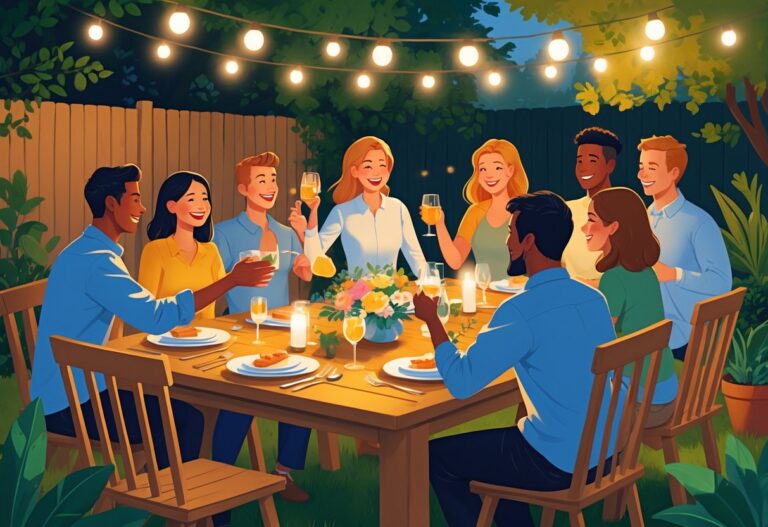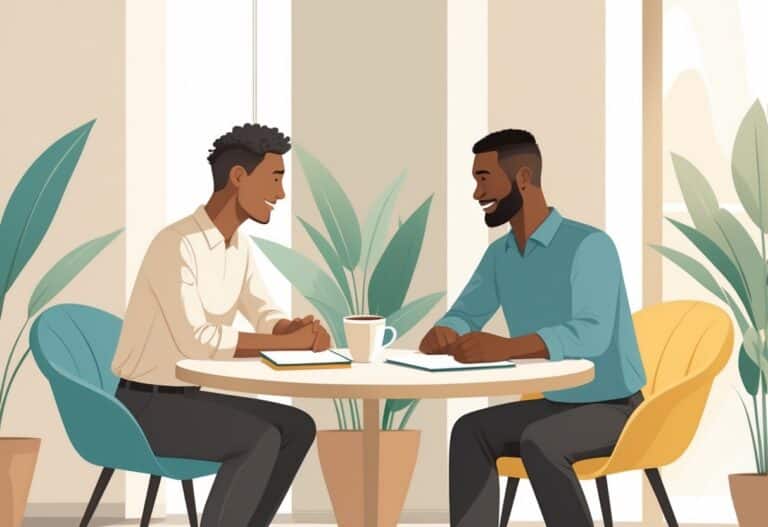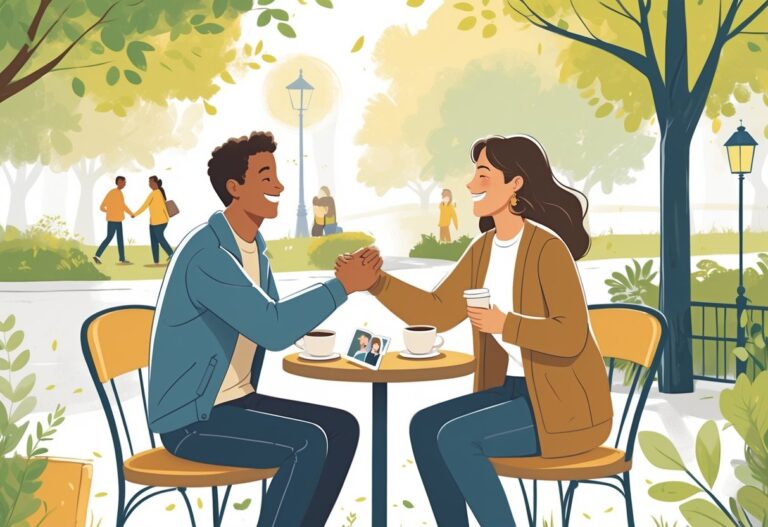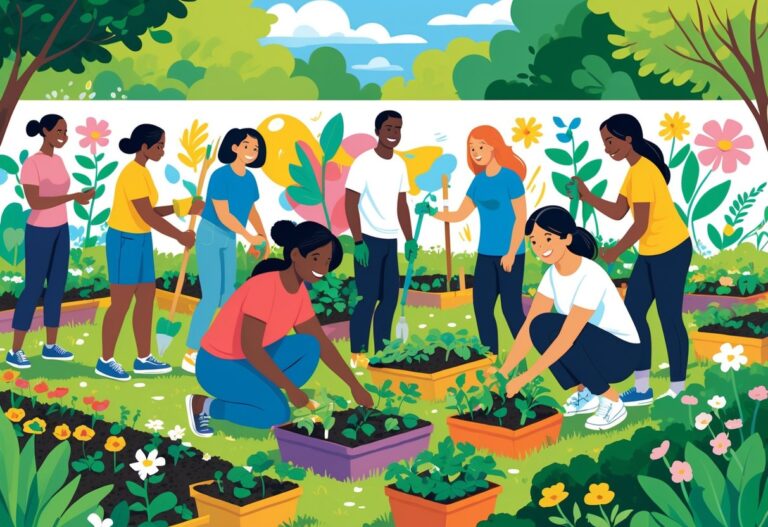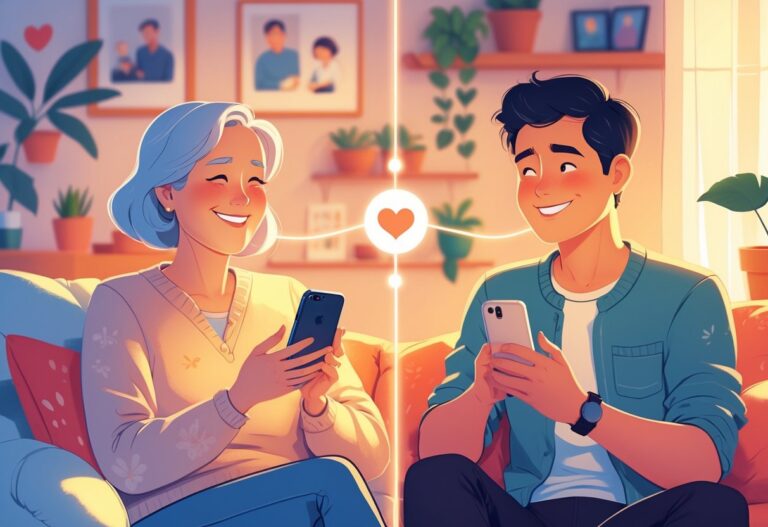Many adults over 60 wonder how to build new social connections after big life changes like retirement, moving, or losing longtime friends.
The good news? Creating meaningful friendships at this stage is not just possible—it’s often more rewarding than you’d expect, once you know where to look.
You’ve got unique advantages now—more free time, clearer personal values, and decades of stories that make you an interesting companion.
Unlike younger folks who rely on work or school for friends, you’re free to pursue relationships based on shared interests and values.
Building a social circle at this age just takes a different approach.
You’ll find practical ways to break through common barriers, discover where like-minded people gather, and use both classic community resources and modern digital tools to expand your network.
Why Building Friendships After 60 Matters
Strong social connections matter more as you age, directly shaping your physical and mental wellbeing.
Research shows that friendships after 60 can boost health and happiness, even protecting against some serious health risks.
The Health Benefits of Friendship
Social connections give you measurable health perks, which get more important in your 60s.
Your immune system gets stronger when you keep up regular friendships.
Blood pressure often drops if you’ve got people to talk to and spend time with.
Heart Health Improvements:
- Lower risk of heart disease
- Reduced blood pressure
- Better cardiovascular function
- Decreased inflammation markers
Your stress hormones drop when you have close friends.
Talking things through and sharing experiences helps your body handle life’s bumps.
Friends often nudge you toward healthy habits.
You’re more likely to exercise, eat better, and keep up with medications when you’ve got people checking in.
Many folks find their friends become accountability partners for doctor visits and health routines.
Reducing Loneliness and Social Isolation
Loneliness affects millions of seniors as social circles shrink with age.
Major life shifts—retirement, moving, losing loved ones—can leave you feeling cut off.
Social isolation isn’t quite the same as loneliness.
You might feel lonely even in a crowd, or be alone but not feel lonely if your connections are meaningful.
Common causes of isolation after 60:
- Retirement from work
- Children moving away
- Death of spouse or friends
- Health problems that limit mobility
- Moving to new communities
Regular social contact breaks the cycle of isolation.
Even a short chat with a neighbor or a quick call to an old friend can change how connected you feel.
It’s about having people who get your experiences and share your interests or values.
Mental and Physical Health Impacts
Research says loneliness can be as harmful as smoking 15 cigarettes a day.
Poor social connections raise your risk of death by nearly a third.
Mental Health Benefits:
- Lower depression rates – Friends offer emotional support when life gets tough
- Reduced anxiety – Social ties provide reassurance and perspective
- Better cognitive function – Conversations and activities keep your mind sharp
- Increased life satisfaction – Shared moments bring joy and meaning
Your brain stays sharper when you keep up friendships.
Regular chats, group activities, and solving little problems together help prevent mental decline.
Physical health gets a boost too.
Friends encourage you to stay active, try new activities, or stick with routines that help you thrive.
Sleep often improves when you feel connected.
Worries and stress drop when you have someone to confide in.
Increasing Purpose and Belonging
Friendships add meaning to your life and help you feel valued in your community.
When someone cares about your wellbeing, you feel more purposeful.
Ways friendship creates purpose:
- Volunteering together for causes you care about
- Sharing skills and knowledge with others
- Supporting friends through challenges
- Creating new memories and experiences
Intergenerational friendships can be especially rich.
Younger friends offer new perspectives, while you bring wisdom and experience.
Belonging comes from being part of something bigger than yourself.
Friend groups form mini-communities where you feel accepted and understood.
Your identity stays strong when friends have known you through different life stages.
New friendships after 60 help you explore parts of yourself that might’ve been on the back burner during busy years.
Common Challenges and Barriers to Making New Friends
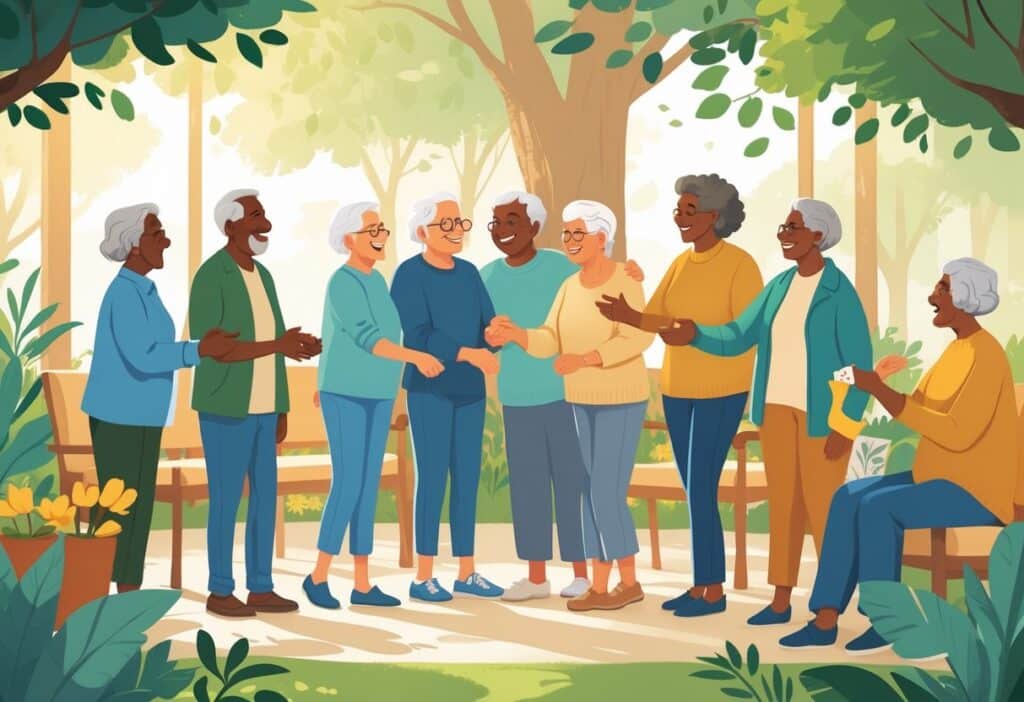
Making friends after 60 comes with some unique hurdles.
From shrinking social circles to health issues that limit mobility, it’s not always easy.
Knowing what you’re up against helps you come up with real strategies to build new connections.
Shrinking Social Circles in Later Life
Your social network naturally gets smaller as you age.
Work friends retire or move.
Old friends might pass away or relocate to be closer to family.
Life changes add to the challenge.
Maybe your kids live far away now, or you’ve lost a spouse and your main companion.
Major life transitions that affect friendships:
- Retirement from work
- Death of spouse or close friends
- Children moving away
- Relocating to a new community
- Health changes in yourself or friends
Without daily routines from work or parenting, it’s easier to feel isolated.
Your remaining friends might have different interests or less energy than before.
Some are busy caring for others or dealing with their own health.
Overcoming Fear and Social Anxiety
A lot of people over 60 feel anxious about making new friends.
You might think you’re too set in your ways or worry that your stories won’t interest anyone.
Social anxiety can spike after big changes.
Moving or losing a spouse brings extra stress about meeting people.
Common fears include:
- Being rejected or judged
- Not knowing what to say
- Feeling awkward in group settings
- Thinking you’re too old for new friendships
But honestly, friendship doesn’t care about age.
We all want connection.
Plenty of people break the ice by joining structured activities where conversation starts naturally.
Small steps work best.
Try a hobby group or go to a local event—no need to rush.
Addressing Health and Mobility Limitations
Physical issues can make socializing harder.
Maybe walking or driving is tough, or hearing makes group chats tricky.
Common health barriers:
- Difficulty walking or driving
- Hearing or vision problems
- Chronic pain or fatigue
- Memory concerns
Still, these don’t have to end your social life.
Many communities offer accommodations so everyone can join in.
There are fitness programs for those with limited mobility, and staff often help lead accessible group activities.
Pick things that match your abilities.
Chair yoga, book clubs, or craft circles might suit you better than hiking.
Tech can help too.
Video calls let you join in from home when getting out is tough.
Your mental health still benefits from social connections, even if you need to adapt how you socialize.
Mindset and Habits for Making Connections
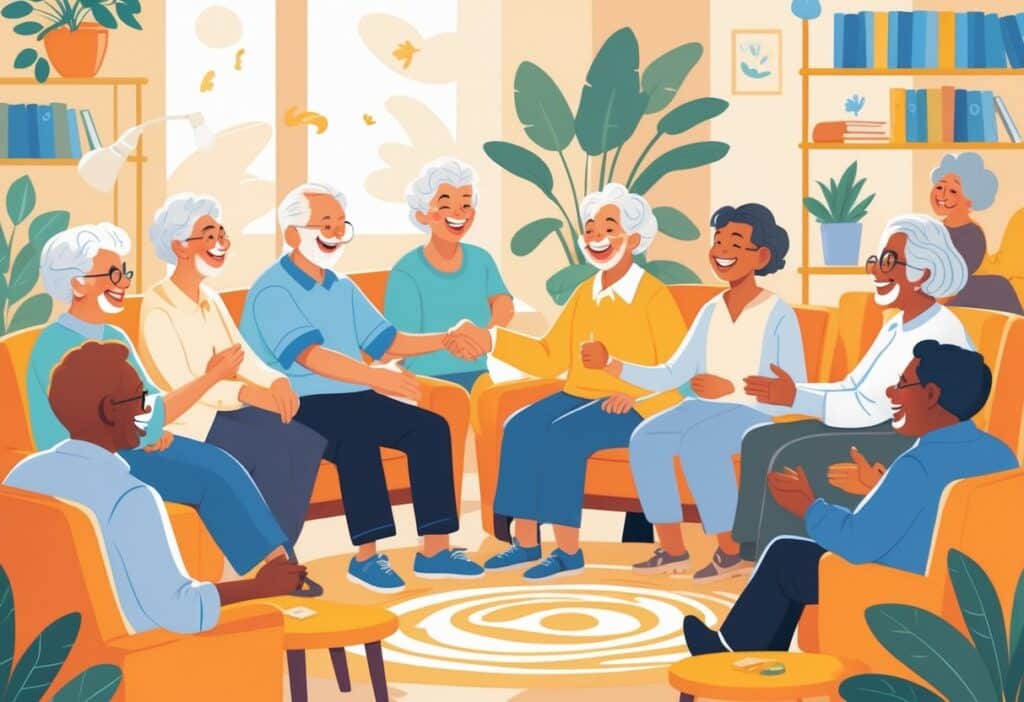
Building friendships after 60 starts with your mindset and habits.
Being open to new people, knowing what you want, and consistently reaching out all make a difference.
Being Open and Approachable
Your body language and attitude speak volumes.
Smile when you meet someone new.
Make eye contact and keep your posture relaxed.
Uncross your arms—show you’re open to connecting.
Listen more than you talk.
Ask about the other person’s interests.
People remember how you made them feel, especially the first time.
Try not to judge too quickly.
Someone quiet at first might become a great friend once they’re comfortable.
Practice small talk.
Comment on the weather, a community event, or whatever you’re both doing.
These tiny chats can open the door to deeper friendships.
Don’t be shy about making the first move.
Chances are, others are also hoping to make new friends.
Defining What Friendship Means to You
Think about what you want from friendship now.
Some crave deep, close bonds.
Others enjoy lots of casual friendships.
Consider these qualities:
- Shared interests – hobbies, activities, or causes you both like
- Similar values – beliefs about family, community, lifestyle
- Compatible schedules – being able to meet up regularly
- Communication style – texting, phone calls, or face-to-face
Write down your top three must-haves in a friend.
It’ll help you focus on people who really fit what you want.
Friendship after 60 often looks different.
You might value reliability and support more than wild adventures.
Taking Initiative and Maintaining Consistency
You have to take action.
Invite someone for coffee after meeting at an event.
Suggest a walk or a shared activity.
Follow up within a few days if you meet someone new.
A simple text or phone call keeps the connection going.
Consistency matters more than grand gestures.
Regular contact builds trust.
Create a simple system:
- Weekly coffee dates
- Monthly group outings
- Holiday or birthday cards
- Quick check-in messages
Show up when you say you will.
Dependability is huge when making friends after 60.
Be patient.
Strong friendships might take 6-12 months to really grow.
Top Places to Meet New Friends After 60
The best chances to build new friendships happen where you share interests with others.
Senior centers and retirement communities help older adults connect.
Activity groups and faith-based gatherings are also great for sparking conversation.
Community and Senior Centers
Community centers offer structured activities that make meeting people easier.
You’ll find regular events—game nights, classes, and social hours.
Senior centers focus on age-appropriate programs.
Activities might include bridge tournaments, computer lessons, or discussion groups.
Many centers organize day trips.
Shared experiences like these help people bond naturally.
Popular Center Activities:
- Card and board game groups
- Exercise and wellness classes
- Educational workshops
- Social dining programs
- Arts and crafts sessions
Staff at these centers often help connect you with others who share your interests.
They usually know who’s hoping to expand their social circle.
Activity and Hobby Groups
Gardening clubs can help you meet others who share your interests. Community gardening projects bring people together through shared work and common goals.
Walking groups give you regular exercise and a chance to chat. Parks and neighborhoods often organize morning or evening walking meetups for seniors.
Book clubs for seniors offer a way to share your passion and make new friends. Libraries and bookstores usually host these weekly or monthly gatherings.
Hobby-specific groups focus on activities like:
- Photography clubs
- Cooking classes
You’ll also find art workshops, music groups, and travel clubs. These groups meet regularly, so you see the same people again and again.
Faith-Based and Spiritual Gatherings
Church senior groups usually focus on fellowship and provide fun and entertainment. They often organize day trips, theater outings, and restaurant visits.
Temples and other religious centers offer age-specific programs. You might find study groups, volunteer opportunities, and social events.
Benefits of Faith-Based Connections:
- Shared values and beliefs
- Regular meeting schedules
You’ll find volunteer opportunities, holiday celebrations, and prayer or support groups. Many religious organizations have programs just for older adults.
The common ground of shared faith can create a strong foundation for lasting friendships. You already have important values in common with other members, which just makes things easier.
Leveraging Activities and Interests to Build Friendships
Shared activities open up natural ways to meet like-minded people. Regularly joining structured groups helps you build trust and familiarity with potential friends.
Joining Book Clubs and Discussion Groups
Book clubs offer regular meetings with people who love reading as much as you do. You’ll end up talking about stories, characters, and themes that spark interesting conversations.
Most libraries host monthly book clubs for different genres. Bookstores often run discussion groups and welcome new members.
Book clubs based on shared interests help you connect with people who enjoy similar topics. You’ll find all sorts of formats:
- Fiction focus groups
- Biography and memoir clubs
There are also historical fiction discussions and mystery or thriller meetups. If you prefer virtual meetings, online book clubs through Facebook or Goodreads work well.
You can join several groups to meet more people. Start conversations by asking about favorite authors or recommending books you’ve enjoyed.
Don’t be shy about sharing your thoughts during discussions, and remember to listen to others’ perspectives too.
Enrolling in Fitness Classes
Exercise classes create dynamic communities where you can get active and meet new people. Showing up regularly helps you build relationships with classmates and instructors.
Common fitness options for seniors:
- Water aerobics sessions
- Yoga classes
Walking groups, dance classes, and strength training are also popular. SilverSneakers programs at many gyms offer fitness classes designed for older adults.
These classes focus on safe, effective exercises while encouraging social interaction. Arrive a bit early to chat with other participants.
Ask about their fitness goals or how long they’ve attended the class. Many folks grab coffee together after workouts—why not join them?
Group fitness gives you accountability partners who help you stick with it. You’ll start looking forward to seeing familiar faces each week.
Participating in Lifelong Learning and Workshops
Continuing education classes keep your mind sharp and connect you with curious, engaged people. Learning together gives you easy conversation starters and shared experiences.
Community colleges offer lifelong learning programs with courses like history, languages, art, and computer skills. Senior centers also host workshops on practical topics like cooking, gardening, and crafts.
Popular learning opportunities:
- Foreign language classes
- Art and painting workshops
Computer and technology training, history and culture courses, and music or singing groups are great options too. Pick subjects you genuinely enjoy, not just ones that seem social.
Your enthusiasm will attract others who share your passions. Suggest forming study groups or casual practice sessions outside of class.
Offer to help classmates who might need a little extra support. Sometimes that’s all it takes to make a new friend.
Digital and Community Resources for Socializing
Technology gives seniors more ways than ever to connect from home or find local activities. Online communities for seniors offer safe spaces to meet people with similar interests.
Online Platforms and Facebook Groups
Facebook groups make it easy to find people in your area or who share your hobbies. Search by location or by interests like gardening, cooking, or travel.
Many Facebook groups focus specifically on seniors. These groups often organize local meetups, share advice, and keep the conversation going every day.
Online friendship sites cater to seniors with all sorts of interests and activities. You can create profiles, join discussions, and message other members directly.
Popular types of senior Facebook groups:
- Local community groups
- Hobby-based groups (crafts, reading, photography)
Support groups for life transitions and activity planning groups are out there too. Start by joining a couple of groups that match your interests.
Read posts for a few days before jumping in, just to get a feel for the group’s vibe.
Using Meetup to Find Local Opportunities
Meetup helps you connect with people nearby who want to do the same activities. The platform shows you events based on your interests and location.
You’ll find groups for hiking, book clubs, dining out, games, or volunteer work. Most groups welcome new members and plan regular events, so it’s easy to show up and get involved.
Create a Meetup profile that mentions your interests and what you’re hoping to find. Many groups have beginner-friendly events or new member orientations.
Steps to get started with Meetup:
- Download the app or visit the website
- Enter your zip code and interests
Browse local groups and upcoming events. RSVP for events that sound fun, then attend regularly to build relationships.
Some groups charge small fees to cover event costs, but you’ll find plenty of free activities too.
Virtual Classes and Remote Social Events
Virtual classes help you expand your social circle from home. Community colleges, libraries, and senior centers now offer online classes through platforms like Zoom.
You can take classes in art, history, computer skills, or fitness. Most classes include chat features and breakout rooms where you can actually talk with other students.
Virtual book clubs, game nights, and discussion groups are happening all the time online. Many senior living communities and organizations host these events for free.
Benefits of virtual socializing:
- No travel required
- Weather doesn’t mess up your plans
It’s easy to try different activities, and online events usually cost less than in-person ones. Start with one virtual activity a week.
Pick classes or events that run for several weeks, so you see the same people and have a chance to really get to know them.
Lifestyle Changes and Environments That Foster Connections
Your living situation and daily routines can open up new ways to meet people. Sometimes, moving to a certain environment or just joining local activities puts you around folks with similar interests or life stages.
Senior Living and Retirement Communities
Senior living communities offer built-in social connections through shared spaces and organized activities. These places are designed to bring residents together naturally.
Most retirement communities have common areas like dining rooms, libraries, and game rooms. You’ll run into neighbors during daily activities without having to plan anything special.
Common community features that help friendships form:
- Group dining options
- Exercise classes and pools
Card games, book clubs, garden spaces, walking paths, and organized trips or outings are all part of the deal. Independent living communities give you privacy but still let you meet people nearby.
Assisted living facilities provide more support but still focus on social connections. Staff members often help organize activities and can introduce you to other residents with similar interests.
Engaging With Neighbors and Local Programs
Your neighborhood can be a great place to connect with people who live close by. Start with simple things like saying hello during walks or chatting while getting your mail.
Join programs like Meals on Wheels as a volunteer or participant. You’ll meet both staff and other community members who care about helping others.
Neighborhood watch groups bring residents together for safety meetings. Community gardens give you a chance to work alongside others while growing plants or vegetables.
Easy ways to connect locally:
- Attend homeowners association meetings
- Walk your dog in popular neighborhood spots
Try sitting on your porch or front steps regularly, or offer to help neighbors with small tasks. Local libraries often host book clubs and classes just for older adults.
These programs happen on a regular basis, so you’ll see the same people more than once.
Attending Community Events and Festivals
Community events bring together folks from different neighborhoods who share similar interests. These gatherings pop up all year in most towns.
Farmers markets are great for meeting people on a weekly basis. You can chat with vendors or other shoppers while picking out fresh food.
Plenty of friendships start with a simple conversation at the market.
Community festivals celebrate holidays, seasons, or even local history. These events often need volunteers, which gives you a reason to talk with others.
Popular community events for meeting people:
- Art fairs and craft shows
- Outdoor concerts and music festivals
- Holiday celebrations and parades
- Food festivals and cooking demonstrations
- Historical society events and tours
Religious congregations sometimes host community dinners or charity events. You don’t always have to be a member to join in.
Seasonal events like summer concerts or winter craft fairs show up pretty reliably. It’s nice knowing you can plan ahead and maybe run into familiar faces.

